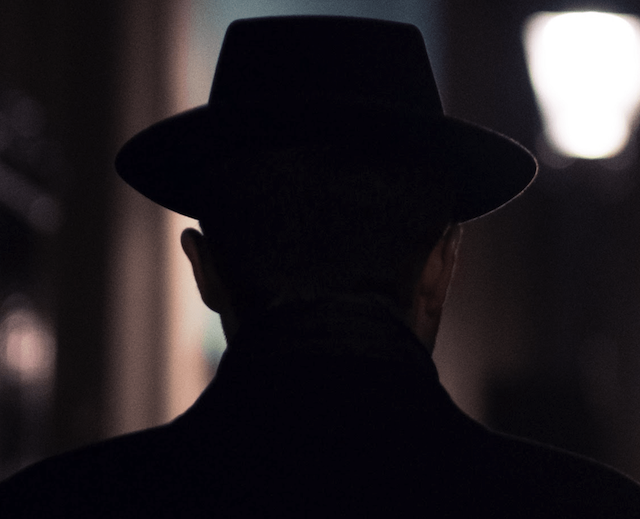Within the first week of English in the 10th Grade, my class—like so many others—adhered to the ancient tradition of picking a book out from the school’s library. Later in the semester, we would be required to write a report on the selected novel. Most of my peers thought of the task as boring and abhorred the idea of spending their morning in a dusty library picking their poison, but I relished it. This would be my first time walking the increasingly less trodden paths that are enveloped by volumes of knowledge.
Two heavy wooden doors with portholes above the eyeline guarded this citadel of literature. My class stormed the gates and entered noisily. Many proudly voiced that they were going to find the smallest book possible. Then I saw him, the guardian of this place. There was an older gentleman with thick glasses sunk in a chair behind the large desk on the right side of the library. He looked defeated, overwhelmed by the barbaric force that carelessly trampled on his silence. Embarrassed by my company, I found my way to a secluded aisle. I was overwhelmed by the sights and smells of this forgotten, rejected place, so much so that I lost track of time—and my class. Like the library, I was alone. Then I heard a low voice sound behind me, “You might like this book.” The voice’s owner pointed to an action book called Point Blanc by Anthony Horowitz. I picked it up and followed the man to his desk. As he was stamping the book, my rights as a borrower were recounted and I listened intently to the consequences of submitting a late novel.
–
I burned through “Point Blanc” that evening, deeply inspired to become a kid spy (although I wasn’t sure where to apply). In fourth period, I proudly waved my book to the English teacher and requested to pick out another. Running back to that mystical lair, I swung open the doors triumphantly and made my way to the Action and Adventure aisle. Snatching another Alex Rider book, I strode purposefully to the desk. The novel masking the guardian’s face was slowly lowered and set aside. Through the thick glasses, I could see a spark in the man’s eyes. Something long lost was being rekindled.
“Already done? Hmmph, that was pretty quick. Light reading, though. We’ll have to get some substance for the next one.”
Signed, sealed, delivered, I was off again—this time with expectations to meet. Same as before, I finished the book promptly that evening. Barely eating or drinking, I received sustenance from the words on the page before me. When I returned to the citadel of knowledge the next day, the sole resident wasn’t reading…it seemed like he was waiting.
“I know exactly what you need” he said while sliding a book onto the desk.
“Wham!” the stamp hit the inside cover of Ender’s Game.
“I know it’s sci-fi, but I think you’ll like it. It even touches on some deep moralistic questions.”
This one took me two days. But when I entered the sanctuary, I could tell that I hadn’t disappointed my mentor. Now the spark was ablaze. The gentleman swung out of his chair and whisked me around the room, tearing books off shelves and excitably mummering, “Ahh, this is the one! That is, if he is interested in…No, it won’t do…” and so on. Eventually, my guide through this literary jungle thrust John le Carré’s Tinker, Tailor, Soldier, Spy into my hands.
“This one’s tough, but you can do it” was all I got.
The book was stamped, and my fate was sealed.
–
One day became two, then a week, then a month. I couldn’t do it. It seemed like someone took the plot, had it minced, and mailed its pieces to every country—leaving it up to me to re-assemble the story. I had numerous questions, “Why so many stink’n names to keep track of?”, “What country are we in?”, and “Why on earth is all-class spy, George Smiley, hanging around a circus?”. My family pitied this anguish of mine and my older sister recommended that I try reading the words and not the story—advice left untaken. I knew what I had to do, but the thought was terrifying. I had to return to the treasured place with an unfinished book in hand.
The door felt heavier this time. I approached the desk only to find that the guard wasn’t manning his post. I waited solemnly for my failure to be consummated. Eventually, the man returned and promptly took a seat.
“This one took a while” he said while scanning the barcode.
“How was it?”
I told him that I didn’t make it.
“Oh.”
I thanked him for his time and began to exit the library.
“Just a minute. There is a $2.00 late fee on this return.”
The librarian didn’t say this with glee or pain, but with dutiful resolve. I told him that I’d return shortly to pay my debt. It was Friday, so I had some money with me for cafeteria pizza. When the bell rang, I slipped away from my friends, like I had some criminal rendezvous to get to. My change fell on the desk with the same ring as Judas’s blood money when scattered across the priest’s floor. I took one last look around the library scanning the paintings, the sea of books, and the librarian’s eyes. The spark was out.
